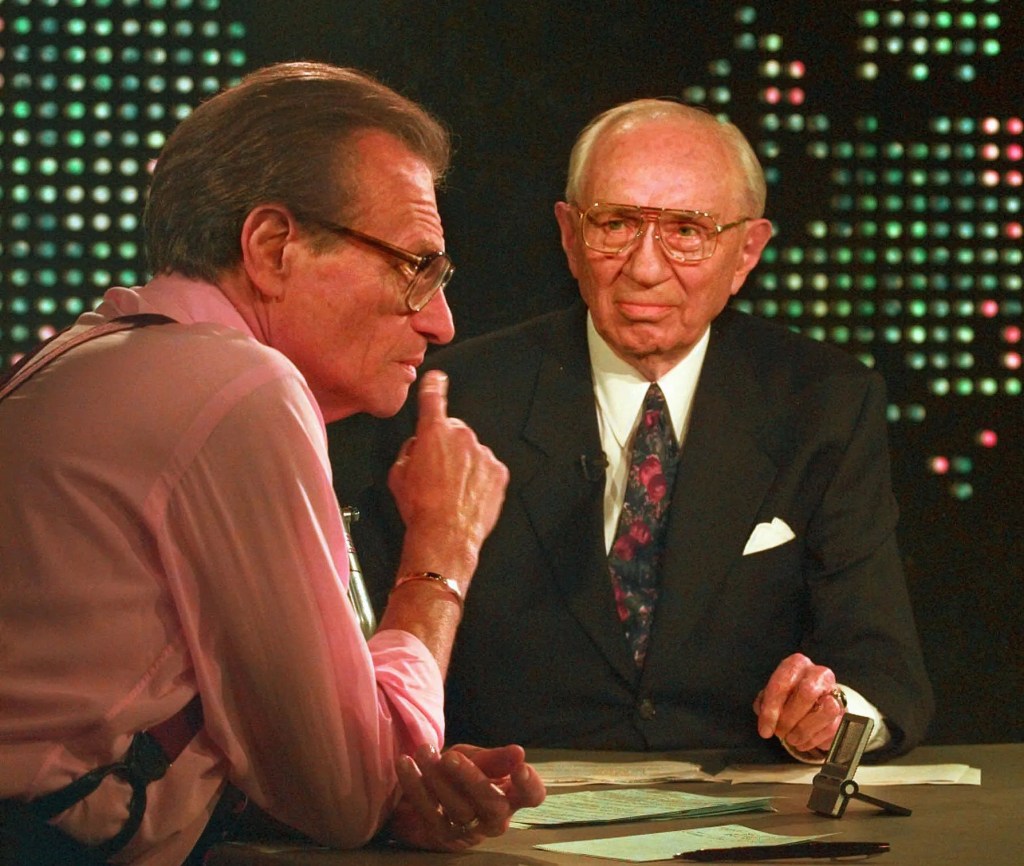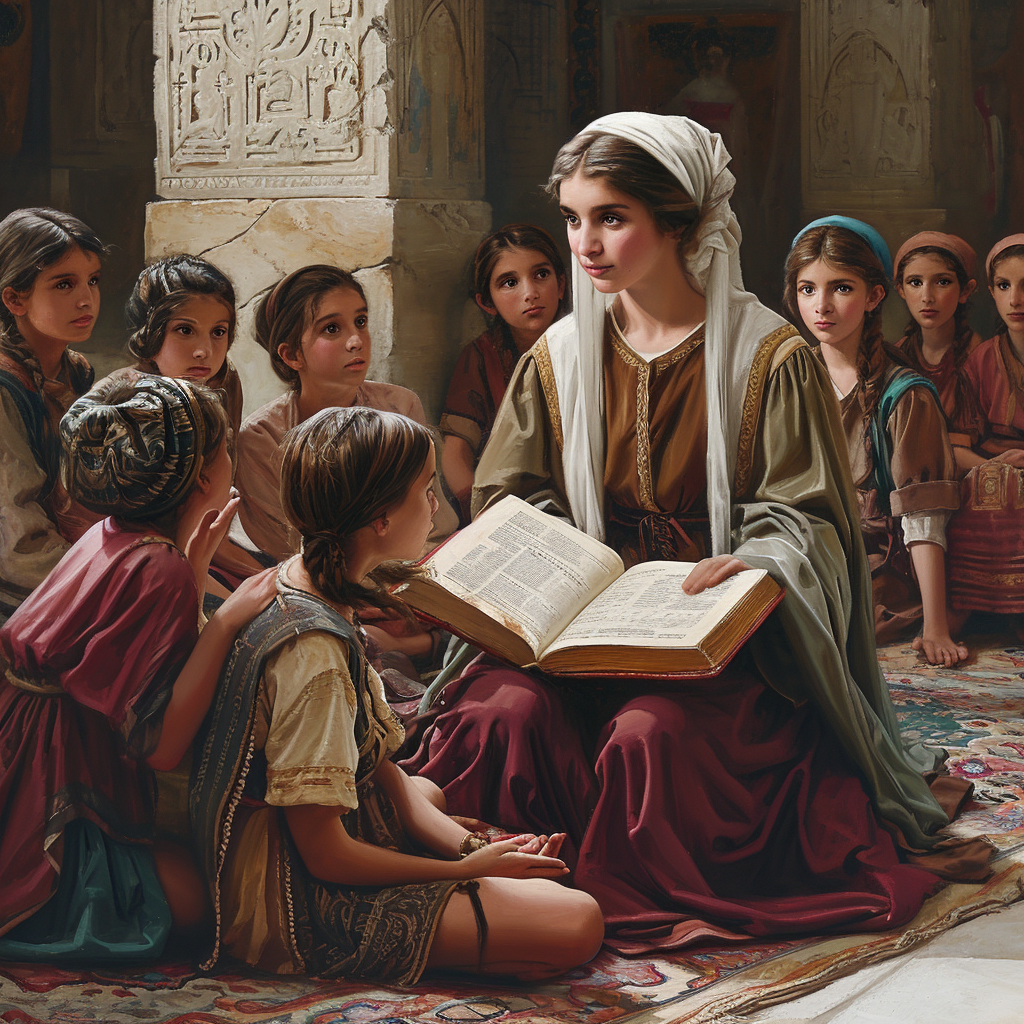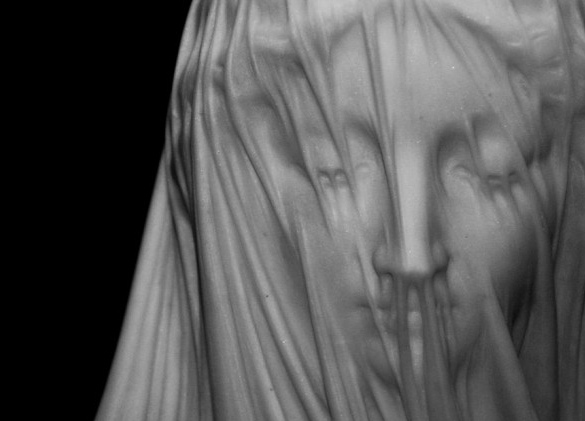Aimee
Background Perspective
Between 1997 and 1999 I served an LDS mission in the Canary Islands. While I was on the island of Grand Canaria church president, Gordon B. Hinckley visited the mission (13 Feb 1998). The venue was a few blocks away from our apartment in Las Palmas, my first area.
I was beyond excited. We invited all of our investigators. We passed out flyers to people on the street. I talked in my sleep, speaking Spanish, to invite everyone I could, even in my dreams, to come hear the prophet.
All of the missionaries gathered in from the outer islands to hear him. We all sat together in the upper balcony and had to arrive some few hours in advance to secure the seats together. When President Hinckley walked into the room everyone stood. I practically jumped to my feet, as an instinctual reaction.
Why? Well, I just knew (read: innocently believed really, really hard) that he met face to face with Christ. That was literally his privilege as prophet to all the world. And I had the unique opportunity to be in the same room as someone who regularly held an audience with the Savior.
President Hinckley didn’t say anything that was particularly memorable or important. I do remember laughing when the translator removed Hinckley’s praise directed at himself from the Spanish translation. Only people who understood English would have caught the alteration. And like a comedy routine, when some of the audience laughed, President Hinckley looked suspiciously over at the translator, who only smiled, and we laughed all the more.
Several months later on 09 Aug 1998 Hinckley did an interview on Larry King Live. In the mission field we were keenly aware of the world stage our prophet would soon take. What an amazing opportunity to testify to the world instead of relying on an army of 19 to 22 year-old barely adults!

During the interview Larry King asked him the question, “Are you a prophet?”
He responded with, “I am sustained as such.“
Excuse me? What? A softball question and he fumbled a prime opportunity to testify to the world THAT HE IS GOD’S PROPHET.
We grew up being taught and believing the principles outlined in The Profile of a Prophet by Hugh B. Brown wherein he described that:
He will boldly claim that God had spoken to him.
I couldn’t understand why Hinckley had answered in this way. It was not only disappointing, it was deeply unsatisfying. Especially after having recently seen him in person.
Looking at the CNN transcript of this interview now more than 26 years later, that part, so vivid in my memory because it was so jarring, is inexplicably missing. It may have been carefully edited out because I am not the only one who remembers him saying this.
Though evidence for that particular comment exists only in the contemporary personal journals of those who heard it, it wasn’t an isolated incident. Hinckely was recorded saying something very similar earlier that same year.
SF GATE Interview, 13 April 1997
A: Well, in the first place, it’s the restoration itself. The Catholic Church is here, the Protestant churches are outgrowths from the Catholic Church. We are not part of the Catholic Church, and we’re not protesting anything. We say that we are a restoration of the church that existed anciently, and that’s the reason we have the name “Latter-day Saints.” In the early days of the church, back in the days of the Apostles, they were called saints as Christians. We’re the latter-day saints. And that’s one thing that’s different. Modern revelation. We believe all that God has revealed, all that he does now reveal, we believe he has yet to reveal many great and important things pertaining to the Kingdom of God. So, we believe in the principle of continuous revelations.
Q: You are the president, prophet, seer and revelator of the Mormon Church?
A: I am so sustained, yes. (Laughter)
Who is a prophet?
I never told my children that Santa Claus was real when they were little. Why? Because I didn’t want them to feel that I had betrayed their trust when they eventually learned the truth. Now, I am quite discouraged that I passed unbelief along to my children, teaching them that the president of the LDS church was a true prophet who talked face to face with God.
The world always mistook false prophets for true ones, and those that were sent of God they considered to be false prophets…
An editorial by Joseph Smith Jr. published in the Times and Seasons, 1 April 1842, entitled “Try the Spirits”.
Today I realize that a true prophet is not a singular man (the only one in all of the world) who sits at the top most hierarchy of a church organization.
Even historically we know that many prophets were contemporary with each other. Ezekiel, Jeremiah, Obadiah, Lehi and Daniel (circa 586), for example. Or Isaiah, Hosea, and Micah (740 to 725 AD).
Who is a prophet? What makes someone a prophet? It is a title that identifies something about someone. What does a true prophet do, exactly?
The late 12th century English word prophet comes from the Latin propheta and the Greek prophetes (προφήτης) which literally means “to speak forth, speak out, one who speaks forth.” A prophet is one who has the spirit of prophecy, which is the testimony of Jesus. The testimony of Jesus is the spirit of prophecy (Revelation 7:10 RE). John the Beloved spoke of the importance of a personal testimony of Christ by directly connecting it with the gift of prophecy. To have a saving testimony of Him is to become a prophet. It is no wonder, then, that Moses wished all men were prophets (see Numbers 7:19 RE).
Prophets have almost never presided over a congregation (other than occasionally a small inner-circle). They always speak from the sidelines, crying for a return to God’s ways.True prophets may teach, but they do not supplant.
Excerpts from Glossary: Prophet
Prophets Speak
Looking in the scriptures we can confirm this etymology:
And he commanded them that they should teach nothing save it were the things which he had taught and which had been spoken by the mouth of the holy prophets.
And now, my son, this is the restoration of which has been spoken by the mouths of the prophets.
Alma 19:8 RE
He began to remember the words which had been spoken by the mouth of all the prophets, and he saw them, that they were fulfilled thus far every whit.
This act of a prophet speaking is consistent with the Latin and Greek literal translation. But lots of people can get up on their soap box and spout off whatever nonsense. That doesn’t make them a prophet. There’s something more to being a true prophet.


Before I go on, it’s going to seem like I’m taking a detour from the prophet definition. Stick with me. It will all make sense in a minute.
The Purpose of the Sabbath
One of the crucial issues that we often overlook in the fall of Adam and Eve is that they rushed into the work of mortality without proper preparation. The Sabbath day of rest was not observed because they partook of the fruit too soon. It was out of season.
To everything there is a season, and a time to every purpose under the heaven: a time to be born, and a time to die; a time to plant, and a time to pluck up that which is planted; a time to kill, and a time to heal; a time to break down, and a time to build up; a time to weep, and a time to laugh; a time to mourn, and a time to dance; a time to cast away stones, and a time to gather stones together; a time to embrace, and a time to refrain from embracing; a time to get, and a time to lose; a time to keep, and a time to cast away; a time to rend, and a time to sew; a time to keep silence, and a time to speak; a time to love, and a time to hate; a time of war, and a time of peace.
Ecclesiastes 1:10 RE, Eccles. 3:1-8 KJV
What was supposed to happen on the Sabbath that they missed out on?
Learning.
Take as evidence the example of our Lord during His life and His later commandment given in 1831.
But he, passing through the midst of them, went his way and came down to Capernaum, a city of Galilee, and taught them on the Sabbath days. And they were astonished at his teaching, for his words were with power.
–Luke 4:4 RE, Luke 4:28-32 KJVAnd directly, on the Sabbath day, he entered into the synagogue and taught.
–Mark 1:6 RE, Mark 1:21 KJVAnd they shall also teach their children to pray, and to walk uprightly before the Lord. And the inhabitants of Zion shall also observe the Sabbath day to keep it holy.
–T&C 55:6, D&C 68:29-32
“It is noteworthy that immediately following the command to teach our children we are warned to observe the Sabbath day to keep it holy. These are non-delegable duties. We have the duty to acquaint our children with scripture. Zion will consist of parents who have taught their children the gospel, and children who have gained gospel understanding.”
Marriage and Family, paragraph 33 (approx. page 421)
The purpose of the Sabbath is to be taught, to learn. A day of “rest” doesn’t mean to lounge about all day. You’re meant to partake of the “rest of the Lord”, meaning coming into a greater understanding of light and truth.
The “rest of the Lord” is the fullness of His glory, or in other words, light and truth of a perfect day.
Time and Preparation
Was Adam a prophet when he left the Garden of Eden? I’m going to go out on a limb and say that he was not. He knew God was real, but that was the extent of his knowledge. It wasn’t enough.
He didn’t know enough to even understand the symbolism of Christ in the sacrifices he was dutifully offering. He did not have the spirit of prophecy which is the testimony of Jesus. He did not have sufficient understanding to properly teach his children until several generations later [see ref].
What happens to children when they are not taught correct principles? They grow in wild and unruly ways.
When they’re young, children are like tender branches that can be trained and staked straight.
Train up a child in the way he should go, and when he is old, he will not depart from it.
Behold, my time is at hand. I perceive that ye are weak, that ye cannot understand all my words which I am commanded of the Father to speak unto you at this time; therefore, go ye unto your homes, and ponder upon the things which I have said, and ask of the Father, in my name, that ye may understand and prepare your minds for the morrow, and I come unto you again.
3 Nephi 8:1 RE, 3 Ne. 17:1-4
A similar message was given to Hyrum Smith. He was anxious to go out and preach, but he was counseled to focus first on his own learning and understanding.
Wait a little longer, until you shall have my word, my rock, my church, and my gospel, that you may know of a surety my doctrine. And then behold, according to your desires, yea, even according to your faith shall it be done unto you. Keep my commandments, hold your peace, appeal unto my spirit, yea, cleave unto me with all your heart that you may assist in bringing to light those things of which have been spoken, yea, the translation of my work. Be patient until you shall accomplish it.
Behold, this is your work: to keep my commandments, yea, with all your might, mind, and strength. Seek not to declare my word, but first seek to obtain my word, and then shall your tongue be loosened. Then, if you desire, you shall have my spirit and my word, yea, the power of God unto the convincing of men. But now hold your peace, study my word which has gone forth among the children of men, and also study my word which shall come forth among the children of men, or that which is now translating, yea, until you have obtained all which I shall grant unto the children of men in this generation, and then shall all things be added thereunto.
Taught by God
God teaches in a systematic way. You must comprehend some things before you can even be taught other things.
For behold, thus saith the Lord God, I will give unto the children of men line upon line, precept upon precept, here a little and there a little. And blessed are those who hearken unto my precepts and lend an ear unto my counsel, for they shall learn wisdom. For unto him that receiveth I will give more;
2 Nephi 12:6 RE, 2 Ne. 28:29-31
A willing student is first taught by God and then comprehends enough that he can to speak, write and teach others. So here we arrive at the foundation of who a prophet is.
For the Father testifies he sent me, and anyone who accepts the Father’s testimony, and has the faith in him to heed his testimony, I will raise upward in the resurrection of the just. For it is written in the prophets, And these shall all be taught by God. Every person who has hearkened and has learned the will of the Father, accepts me as his messenger.
St John 5:18 RE, John 5:15 RE, & John 6:45 KJV
There is a pronoun in this verse that, I believe, points to this important relationship.
“These” refers both to:
1. Prophets who have written and
2. Anyone who accepts the Father’s testimony and heeds it in faith.
Both groups, the writing prophets and those accepting the Father’s testimony, are taught by God. The difference being, the first group has already learned enough to write in the first place.
But the Comforter, who is the holy ghost whom the Father will send in my name, he shall teach you all things, and bring all things to your remembrance — whatever I have said unto you.
And that was Adam’s problem. In the Fall he forfeited the time that was set aside in order for him to be sufficiently taught. By God. In the garden, where the cares of the world and survival itself would not crowd out the capacity for understanding.
Learning takes time, even when taught by God Himself.
All Truth
God is the source of all truth. All truth can be circumscribed into one great whole. I know many of you have heard this before, but have you considered the far reaching effects of that doctrine? What is included?
Literally everything.
Algebra, biology, probability, astronomy, physics, chemistry, calculus, engineering, metallurgy, language, art, economics, music, geometry, history….let me pause there.
The truth of all things that have gone before, this thing we call history, is literally HIS STORY.(Note: The word play relationship doesn’t exist by an etymological standard, but it’s a fun coincidence in English.)
And now verily I say unto you, I was in the beginning with the Father, and am the Firstborn, and all those who are begotten through me are partakers of the glory of the same, and are the church of the Firstborn. You were also in the beginning with the Father, that which is spirit, even the spirit of truth, and truth is knowledge of things as they are, and as they were, and as they are to come; and whatever is more or less than these is the spirit of that wicked one who was a liar from the beginning.
T&C 93:8, D&C 93:21-25
If something is true, it came from God.
The truths that you discover at the highest level of the teachings of Hinduism and at the highest level of Buddhism and at the highest levels of the Christian
experience all merge into a kind of singular, harmonious whole that agrees with one another across the religions.
Adam became a Prophet
And after many days, an angel of the Lord appeared unto Adam, saying, Why do you offer sacrifices unto the Lord? And Adam said unto him, I know not but the Lord commanded me. And then the angel spoke, saying, This thing is a similitude of the sacrifice of the Only Begotten of the Father who is full of grace and truth. Wherefore, you shall do all that you do in the name of the Son. And you shall repent and call upon God in the name of the Son for ever more.
Genesis 3:3 RE, Moses 5:6-8
Adam eventually gained sufficient understanding after having been taught by messengers sent by God.
So, let me add this caveat to being taught by God:
…whether by my own voice or by the voice of my servants it is the same.
T&C 54:7, D&C 1:37-39
Once properly endowed with the record of heaven, the Comforter, Adam began to prophesy.
And in that day Adam blessed God and was filled, and began to prophesy concerning all the families of the earth, saying: Blessed be the name of God, for because of my transgression my eyes are opened, and in this life I shall have joy, and again in the flesh I shall see God.
Genesis 3:4 RE, Moses 5:9-12
Prophets Write
In addition to speaking (refer back to “by the mouth of the holy prophets”), true prophets write down essential truths that has the potential to endure into future generations. We’d call it scripture. They’d likely call it their journal.
The prophet Alma taught and understood our Lord’s sufferings as he wrote: And he shall go forth, suffering pains and afflictions and temptations of every kind; and this that the word might be fulfilled which saith: He will take upon him the pains and the sicknesses of his people.
And let them journey from thence, preaching the word by the way, saying none other things than that which the prophets and apostles have written, and that which is taught them by the Comforter through the prayer of faith.
And when he had gathered all the chief priests and scribes of the people together, he demanded of them, saying, Where is the place that is written of by the prophets in which Christ should be born?
Matt 1:6 RE
…I am he of whom it is written by the prophets,
Personally, I think that the inside leather of the garment that Adam received in the garden was used to write the original record known as the Book of Remembrance.
And a book of remembrance was kept, in which was recorded in the language of Adam, for it was given unto as many as called upon God to write by the spirit of inspiration. And by them their children were taught to read and write, having a language which was pure and undefiled.
Genesis 3:14 RE, Moses 6:5-6
The garment makes appearances in scriptures as it passed down through the Holy Order from Adam, through Noah, to Abraham and finally to Joseph of Egypt. This original record was destroyed when Joseph’s brothers destroyed the coat of many colors, which tells us something about what the animal looked like who was the first sacrifice, death, and extinction in the world [1] [2]. After the destruction of the original record, Joseph had to rewrite everything on a more durable medium, and thus we have the origins of the brass plates. [3]
I also tend to think that people in the ancient new world knew enough about this first record written on the original garment and its destruction that Moroni used its symbolism to rally the troops with his Title of Liberty. It wasn’t enough to rend his own coat to create this symbol of Joseph’s coat. He wrote on it.
And it came to pass that he rent his coat, and he took a piece thereof and wrote upon it: In memory of our God, our religion and freedom, and our peace, our wives, and our children. And he fastened it upon the end of a pole thereof. […] Moroni said unto them, Behold, we are a remnant of the seed of Jacob; yea, we are a remnant of the seed of Joseph, whose coat was rent by his brethren into many pieces.
Alma 21:7, 9 RE, Alma 46: 12, 23


Prophecy and the role of the Woman
Eve had a different reaction to her endowment with the Comforter.
And Eve his wife heard all these things and was glad, saying, Were it not for our transgression, we should never had seed, and should never had known good and evil, and the joy of our redemption, and the eternal life which God gives unto all the obedient.
Genesis 3:4 RE, Moses 5:9-12
There is a profound difference between the response of the power of the Spirit unfolding upon these two, with respect to its effect upon Adam, on the one hand, and its effect upon Eve, on the other.
These are remarkably different reactions. To the man it is that he prophesies; that is, he declares the truth—the ‘truth’ being a knowledge of things as they are, and as they were, and as they are to come. That definition is given to us in the Doctrine and Covenants. This is the role of the man, and this is the role that he fulfills.
But to Eve, on the other hand, she obtains wisdom.
The role of the man is knowledge; the role of the woman is wisdom. And you see that on display right here in these verses. It is the role of the woman to have the understanding, to take the prophecy that has been delivered now by Adam, to process it, and to say: “Here is what it means.” This is the role of the woman. This is the gift of the woman. This is eternally the role of the woman.
The Work of a Prophetess
We have precious little informing us of the work of a prophetess in scripture, but I believe that the counterpart to the prophet who is given prophecy is the prophetess who expounds in wisdom the words of prophecy.
In other words, the work of a prophetess is to teach.
And wouldn’t you know it, women seem damn near wired toward teaching. Of the population of preschool and kindergarten teachers, 97.4% are women [source].
A prophet writes the words he’s been given by God.
The counterbalance to the written work of the prophet, is the role of the prophetess to maintain and keep the record.
Similarly, 82.5% of librarians are female [source].
Original School
Understanding these roles of prophet and prophetess, I think we have greater insight into one of the purposes of the temple.
…The temple is the great teaching institution of the human race; universities are much older than we might ever expect. A university began as a Greek Mouseion, a temple of the Muses, who represented all departments of knowledge. The Egyptians called it the “house of Life.” It was an observatory, a great megalithic complex of standing stones (later columns and pylons), with amazingly sophisticated devices for observing and recording the motions of the heavens.
Hugh Nibley, Temple and Cosmos
Civilization began with the Temple as the center of learning, law and culture. The Temple was the original university because it taught of man’s place with God in the universe.
Thus, properly ordered the temple would not just be for adults doing proxy work for the dead. It would be in active use for the living, here and now. What would be taught? Doctrines of salvation, obviously, but why not also reading, writing, math, science, and history, to name a few?
More importantly, who would be taught?
For my soul delighteth in the scriptures, and my heart pondereth them and writeth them for the learning and the profit of my children.
Until a child has the ability to rise up and become a prophet themselves, they must be taught. What better place to receive your education than in the temple?
I have found evidence in the record that supports this idea. We tend to skip over long lists in scripture because they’re boring. But if you dig into these lists, I think a great deal of information can be garnered. For example there is a list of temple servants found in both Nehimiah and Ezra.
The temple servants: the children of Ziha, the children of Hasupha, the children of Tabbaoth, the children of Keros, the children of Siaha, the children of Padon, the children of Lebanah, the children of Hagabah, the children of Shalmai, the children of Hanan, the children of Giddel, the children of Gahar, the children of Reaiah, the children of Rezin, the children of Nekoda, the children of Gazzam, the children of Uzza, the children of Paseah, the children of Besai, the children of Meunim, the children of Nephishesim, the children of Bakbuk, the children of Hakupha, the children of Harhur, the children of Bazluth, the children of Mehida, the children of Harsha, the children of Barkos, the children of Sisera, the children of Thamah, the children of Neziah, the children of Hatipha.
The children of Solomon’s servants: the children of Sotai, the children of Sophereth, the children of Perida, the children of Jaala, the children of Darkon, the children of Giddel, the children of Shephatiah, the children of Hattil, the children of Pochereth of Zebaim, the children of Amon. All the temple servants and the children of Solomon’s servants were three hundred ninety-two.
Nehemiah 2:26-27. Same list in Ezra 1:9
Who were these temple servants? They were the CHILDREN of Israel’s mothers.
Or maybe it ought to be more correctly stated, the temple served the children as their first school.
There are thirty-two (32) mothers listed and eleven (11) servant mothers, all of which average about nine children per family, given a total of 392 children.
Only one woman with them isn’t mentioned as having children: Gishpa, who was likely a grandmotherly matriarch assisting the other mothers.
But the temple servants dwelled in Ophel, and Ziha and Gishpa over the temple servants.
The mention of women by name is so rare in scripture that I doubted my initial hunch that these were the names of mothers. So, I went through and looked up every single name listed. Most were confirmed to be female names. Some were gender neutral. Only one of them was exclusively a male name (Amon), but has a female variation (Amonet).
Ziha (f) = “brightness, whiteness, drought”
Hasupha (f/m) =”stripped; uncovered”
Tabbaoth (f)= “good, goodness”
Keros (f) = “crooked, crookedness”
Sia(ha) (f) = “victory” , “council”
Padon (m/f) = “his redemption”
Lebanah = “white” a poetic name for the moon
Hagabah (f) = “grasshopper”, according to Vedic astrology, the moon sign associated with the name is Cancer.
Shalmai (f) = “my garment”
Hanan (f) – “Mercy”
Giddel (f) = “to become strong great”
Gahar (f) = “deepness”, (m) =”hiding place”
Reaiah (f) = “vision of the Lord”
Rezin (f) = “delightful”, (m) = “goodwill; messenger”
Nekoda (f) = “painted”, (m) = “marked”
Gazzam (f) = “the fleece of them”
Uzza (f) = “strong”
Paseah (f) = “crippled/lame”, (m) = “passing over, halting”
Besai (f) = “a despising, dirty”
Meunim (f) = “Dwelling-places afflicted”
Nephishesim (f) = “diminished, torn in pieces”
Bakbuk (f) = “a flask emptied”
Hakupha (f) = “a commandment of the mouth”
Harhur (f) = “made warm”
Bazluth = (v) “stripping” (n) “onion”
Mehida (f) = “a riddle; sharpness of wit”
Harsha (f/m) = “happiness”
Barkos (f) = “resemble the father “, (m) = “painter”
Sisera (f/m) = “one that sees a horse or swallow” , “meditation”
Thamah (f) = “that blots out, that suppresses”
Neziah (f) = “conqueror, strong”
Hatipha (f/m) = “captured”
Solomon’s Servants
Sotai (f) = “conclusion in pleading, binding”
Sophereth (f) = “scribe”
Perida (f) = “separation, division”
Jaala (f)= “little goat, mountain goat” , “be of practical use”
Darkon (m/f) = “of generation of possession”
Giddel (f) = “great”
Shephatiah (m/f) = “The Lord that judges”
Hattil (m/f) = “Howling for sin”
Pochereth (f) = “Cutting of the mouth of warfare”
Zebaim (location) = gazelles
Amon (m) = “secret, the hidden one; faithful, true; roaring stream”, (F) Amonet
Gishpa (m/f) = “caress”
The familiarity of the names has been lost, but it’s equivalent today would be a list including names such as Jennifer, Megan, Ashley, Brittany, Melissa, Jessica, Kimberly, Michelle, Lisa, and Amanda.
To reiterate, the work of a prophetess is to teach. And where do we find Huldah, the prophetess? As was pointed out in the first post in this series, Huldah was in the college.
So Hilkiah the priest, and Ahikam, and Achbor, and Shaphan, and Asaiah went unto Huldah the prophetess, the wife of Shallum the son of Tikvah, the son of Harhas, keeper of the wardrobe — now she dwelled in Jerusalem, in the college — and they spoke with her.
2 Kings 7:8 RE, 2 Kings 22:14-20 KJV
also in 2 Chron 18:9 RE, 2 Chron. 34:22 KJV

Alma Mater
The term, Alma Mater, encapsulates the idea that educational institutions play a maternal role in nurturing the minds of the next generation. Yet, beneath this institutional representation lies a deeper archetypal reality — the fundamental duty of mothers to be the first custodians of wisdom, learning, and moral guidance.

Alma

Shall any teach God knowledge, seeing he judges those that are high? One dies in his full strength, being wholly at ease and quiet. His breasts are full of milk and his bones are moistened with marrow.
Job 8:9 RE, Job 21:22-26 KJV
The pronouns here seem disjointed because only mothers naturally lactate. I believe this may be a biased mistranslation from either plural (Elohim) or female pronouns. The Latin word “Alma” means to suckle or nourish.
Speaking in a preparatory manner, who is finally ready to be taught by God the Father? Those who have been weaned and drawn from the breast.
Whom shall he teach knowledge? And whom shall he make to understand doctrine? Those who are weaned from the milk and drawn from the breasts, for precept must be upon precept — precept upon precept, line upon line, line upon line, here a little, and there a little. For with stammering lips and another tongue will he speak to this people, to whom he said, This is the rest with which you may cause the weary to rest, and this is the refreshing — yet they would not hear. But the word of the Lord was unto them precept upon precept, precept upon precept, line upon line, line upon line, here a little and there a little, that they might go, and fall backward, and be broken, and snared, and taken.
Isaiah 8:3 RE, Isa. 28:9-13 KJV

I, Wisdom, dwell with prudence, and find out knowledge of clever inventions. The fear of the Lord is to hate evil. Pride, and arrogance, and the evil way, and the froward mouth, do I hate. Counsel is mine, and sound wisdom. I am understanding, I have strength. By me kings reign and princes decree justice. By me princes rule, and nobles — even all the judges of the earth. I love them that love me, and those that seek me early shall find me. Riches and honor are with me — yea, durable riches and righteousness. My fruit is better than gold, yea, than fine gold, and my revenue than choice silver. I lead in the way of righteousness, in the midst of the paths of judgment, that I may cause those that love me to inherit substance; and I will fill their treasuries.
Proverbs 1:36
Teach your Children
You have to take time on Sunday (if that’s the way you’re going to spend your Sabbath) educating your children about the foolishness that they just heard and about the vanity and the pride that has just been visited upon them. You need to inoculate them against the errors of our day, and you need to ensure that they understand the truth.
You’ll note, this quote additionally supports my earlier point about the Sabbath being for teaching and learning.
There are a number of places in scripture where the commandment to “Teach your children” has been reiterated:
Teach your children to honor me.
T&C 158:11And they also shall teach their children to pray and to walk uprightly before the Lord.
T&C 55:5
Parents have a non-delegable obligation to God to teach their children truth. First and foremost the Lord tells us exactly what to teach and even how to say it.
And I have given unto you another law and commandment, wherefore teach it unto your children: that all men everywhere must repent or they can by no means inherit the kingdom of God; for no unclean thing can dwell there or dwell in his presence, for in the language of Adam, Man of Holiness is his name. And the name of his Only Begotten is the Son Ahman, a righteous judge who shall come in the meridian of time. Therefore, I give unto you a commandment to teach these things freely unto your children, saying that by reason of transgression comes the Fall, which fall brings death. And inasmuch as you were born into the world by water, and blood, and the spirit whom I have made, and so became of dust a living soul, even so, you must be born again into the kingdom of Heaven of water, and of the spirit, and be cleansed by blood, even the blood of my Only Begotten, that you may be sanctified from all sin and enjoy the words of eternal life in this world, and eternal life in the world to come, even immortal glory. For by the water you keep the commandment, by the spirit you are justified, and by the blood you are sanctified. Therefore, it is given to abide in you: the Record of Heaven, the Comforter, the keys of the kingdom of Heaven, the truth of all things, that which quickens all things — which makes alive all things, that which knows all things, and has all power according to Wisdom, mercy, truth, justice, and judgment. And now behold, I say unto you, this is the plan of salvation unto all men through the blood of my Only Begotten who shall come in the meridian of time. And behold, all things have their likeness, and all things are created and made to bear record of me — both things which are temporal and things which are spiritual, things which are in the heavens above, and things which are on the earth, and things which are in the earth, and things which are under the earth. Both above and beneath, all things bear record of me.
Genesis 4:9 RE, Moses 6:56-63
Since all truth can be circumscribed into one great whole, it would suggest that the education parents have the right to provide includes many other subjects.
If the prospect of teaching your children seems daunting or overwhelming, remember what God said in regard to teaching:
And faith, hope, charity, and love, with an eye single to the glory of God, qualifies him for the work.
JSH 11:2
Consider that the field spoken of; the one that is white, already to harvest is the one in your own back yard.

Modern society has convinced parents that their sacred right & responsibility in the cultivation of intellect and character of their children is best relegated to the government.
“We cannot continue to send our children to Caesar for their education and be surprised when they come home as Romans.”
-Voddie T. Baucham, Family Driven Faith
TikTok link – Indigenous Elder speaking on compulsory government education
Just as the Alma Mater university fosters intellectual growth, a child’s own mother, in her divinely appointed responsibility, lays the initial bricks in the cognitive and ethical edifice of her children. This linguistic insight thus unveils a primordial truth: the maternal figure stands as the original Alma Mater, the fountainhead of wisdom and the sentinel of a transcendent responsibility to educate and mold the human soul.
Education was always a non-delegable duty. Yet it requires sacrifice. It demands time and preparation.
TikTok link – two dads discussing the realities of the socialization narrative for Home-school vs public school kids.
Yea, they had been taught by their mothers that if they did not doubt, that God would deliver them. And they rehearsed unto me the words of their mothers, saying, We do not doubt our mothers knew.
Alma 26:8 RE, Alma 56:41-48
Knowledge of truth lays the foundation for faith. Why? Because before one can act, we must have a correct understanding.
And as it is through the revelation of these that a foundation is laid for the exercise of faith in God unto life and salvation, the foundation, therefore, for the exercise of faith was, is, and ever will be the same, so that all men have had and will have an equal privilege. Lectures on Faith 4:19
Therefore, not leaving the principles of the Doctrine of Christ, let us go on unto perfection — not laying again the foundation of repentance from dead works, and of faith toward God, of the doctrine of baptisms, of laying on of hands, and of the resurrection of the dead, and of eternal judgment. Hebrews 1:14
We’ll get more into that in the next post on Priests & Priestess.
Treasury of the Temple
A final relevant element of the prophet – prophetess subject is the treasury of the temple.
Through wisdom is a house built, and by understanding it is established, and by knowledge shall the chambers be filled with all precious and pleasant riches.
Proverbs 3:18 RE, Prov. 24:3-4 KJV
“One of the things that’s required in the design of the temple is that there be a treasury. But the word “treasury”… That the room is viewed by some people as having money and gold and silver and value—it’s not that. The treasury of the temple are where the records are kept. It’s where the greatest truths are to be housed. They’re a place for preserving the great truths that God has planted around the earth that are to be gathered together so that there is one place that houses the most valuable thing that we have. “
I believe the treasury of the temple is what we would call today a library. Recall that it was from Laban’s treasury where Nephi retrieved the Brass Plates.
And as I went forth towards the treasury of Laban, behold, I saw the servant of Laban who had the keys of the treasury. And I commanded him in the voice of Laban that he should go with me into the treasury. And he supposing me to be his master Laban, for he beheld the garments and also the sword girded about my loins, and he spake unto me concerning the elders of the Jews, he knowing that his master Laban had been out by night among them. And I spake unto him as if it had been Laban. And I also spake unto him that I should carry the engravings which were upon the plates of brass to my elder brethren, who were without the walls.
1 Nephi 1:18 RE, 1 Ne. 4:19-27
And as thou hast said in a revelation given unto us, calling us thy friends, saying, Call your solemn assembly as I have commanded you, and as all have not faith, seek ye diligently and teach one another words of wisdom, yea, seek ye out of the best books words of wisdom.
T&C 123:2, D&C 109:6-8
Our treasury (library) ought to include well used scriptures, our personal journals and any other good books that may be of benefit to the family.

Visions of the Prophets
Could it be possible that visions are more common and accessible than we realize? In the education of children we have the ability to conjure a world of imagination just in reading stories to them.
When my oldest son was about 8 or 9 years old we read the Chronicles of Narnia every night before going to sleep. One night, as I settled down to read to them for the evening, he asked if he could see the picture from the night before. Confused, I showed him the pages, that there were only words without illustrations. He gasped and realized, “That was all in my imagination?!?”
I’ve heard people say that reading is just staring at marked slices of wood for hours while hallucinating vividly. There is power and magic in reading stories.
I also strongly suspect that our fairy tales that have endured through centuries, some of which have crossed cultural boundaries, such as Cinderella, have a divine origin.
Here is just small sampling of the Cinderella story that appear worldwide:
- Yeh-Shen in China, based on a tale that dates back to the T’ang Dynasty
- The Rough-Face Girl in the Algonquin Indians of North America
- Chinye and Nyasha in Africa
- Cenerentola in Italy
- Tattercoats in England
- Adelita in Mexico
- Cendrillon in the Caribbean
Consider for a moment the story of thetwelve dancing princesses, and the strong religious undertones to the twelve tribes of Israel, the willing self sacrifice of the hero, named Michael also known as the Star Gazer.
Conclusion
This is part of the temple series, so how do Prophets relate to the Temple?
Homes can be temples or at least temple-like if occupied by a husband and wife who receive the Comforter and continue to be taught by God, who teach their children fundamental truths of salvation, who study the scriptures and maintain journals to record personal insights. Together a Mother and Father, united in this aspect of Holy Order to teach their children the peaceable things of the kingdom, I believe are a prophet and prophetess.
And as Moses said, Would to God all the Lord’s people were prophets. We ought to be. I pray we better understand how to be.










